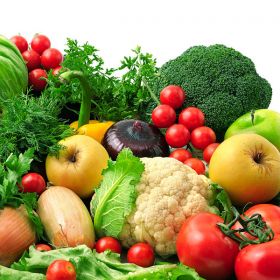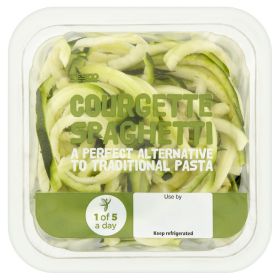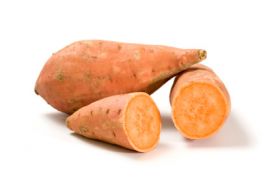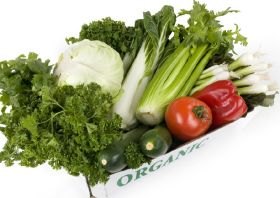Vegetables
The EU’s average fruit and veggie intake has gone up to 364.58 g/day/capita in 2021. It’s a 2.19% increase from last year, and 1.27% higher than the previous 5-year average. However, it’s still almost 10% less than the 400g/day/capita minimum recommended by the World Health Organization.
The fresh produce market size in the EU-27 reached £74.35m tonnes in 2021. This growth aligns with the positive trend seen since 2020, thanks to the Covid-19 pandemic.
But, the economic crisis following the war in Ukraine in 2022 has put fruit and veggie consumption in Europe under pressure. Consumer purchasing power has been affected, and food expenditure has been limited.
During crises, consumers tend to move towards less healthy diets. They see them as more energy-satisfactory and cheaper than fruits and veggies. This is why Freshfel Europe believes that the post-pandemic consumption growth has been lost. Consumption has declined by over 10% in many cases.
According to the Freshfel Europe Consumption Monitor, only a few EU countries reached the recommended goal of consuming at least 400g of fresh fruits and vegetables every day.
Freshfel Europe is concerned that a 2019 Eurostat survey shows that 33% of EU consumers consume no fruit or veggies every day. Another 55% do not reach the recommended five portions a day. The association is also worried about the low consumption rates seen amongst the younger generations and in lower-income households.
Freshfel Europe thinks that more needs to be done to encourage consumption. They believe that the fruit and vegetable sector should build on the momentum of increased consumption. This should be based on the benefits of fresh fruit and vegetables for the planet, the climate, and the consumers’ health.
Freshfel Europe also wants to counter the misperception that fruits and vegetables are expensive. They believe that the sector should demonstrate its affordability and nutritional value. This would help move consumers towards a plant-based diet.
Adding one piece of fruit or vegetable to the daily diet of European consumers could help boost consumption. This could bring the European market size up by almost 20% or 15m tonnes.
Freshfel Europe concludes that a healthy diet that meets the minimum recommendation remains affordable. It can be achieved for less than £2/day.
Information derived from fruitnet.com.
The National Diet and Nutrition Survey found that nearly one in ten people from the Lothians eats no fruit or veg

Cracks about the Scottish diet are nothing new, but now a new study has shown that nearly one in ten people in the Lothians eats no fruit or vegetables.
The National Diet and Nutrition Survey also found that more than two-thirds of people across the region don’t get their “5 A DAY”, and that over half of all Edinburgh adults are either overweight or obese.
In response to the results, the Edinburgh evening news reports, a drive has been launched to promote healthier eating habits among the region’s population.
Edible Edinburgh is a campaign that brings together the NHS, city council and volunteer-led groups in a bid to change public attitudes to food and encourage people to buy more local produce and grow their own fruit and veg.
Launching Edible Edinburgh, the city council’s environment convener Lesley Hinds told the Evening News: “We all know that a nutritious diet, including plenty of cereals, fruit and vegetables, is essential for a good start in life, and to stay healthy later on.
“Unfortunately, not everyone has access to affordable fresh and healthy food, and we are determined to change that in Edinburgh.”
Cauliflower couscous, carrot spaghetti, and courgette ribbons products unveiled at the UK’s largest supermarket
Tesco has released a range of new vegetable products to cater for the latest diet craze.

Two of the hottest trends among foodies and the diet-conscious at the moment involve blitzing produce in a food processor or ‘spiralising’ vegetables to create less calorific replacements for carbohydrates.
Among the most popular are vegetable substitutes for pasta, mash, rice, couscous, pizza bases and bread.
For the first time a range of ready-prepared vegetable substitutes for popular carbs is to go on sale across the UK, launched by Tesco.
Included in the new Tesco prepared vegetable range are: Cauliflower couscous, carrot spaghetti, and courgette ribbons.
Tesco prepared veg buyer Emma Bonny, said: “Creating vegetable substitutes for carbs such as potatoes, rice and pasta is really growing in popularity right now, and not just for the diet-conscious.
“Look on foodie websites and you’ll find wonderful recipes from adventurous home chefs who have spiralised and mashed their non-carb vegetables or created cauliflower breadsticks and other bread alternatives.
“It’s easy if you’ve got a decent food processor and spiraliser, but not everybody has, so we think these new ready-prepared fresh vegetable packs will provide shoppers with a simple option for lowering their carb intake.”
While the carrot spaghetti and courgette ribbons are intended as a substitute for pasta, the cauliflower couscous – which can be eaten hot or cold – can be used as an alternative to rice and even mashed potato.
The three packs each cost £1, and are available to buy in 235 Tesco stores across the UK. They are currently available in a 3 for 2 meal deal offer.
EVS2015: Wilco van den Berg of Fresh Produce Centre recommended a collective strategy in order to boost consumption of vegetables
The challenge of feeding a rapidly growing global population while at the same time promoting an increase in vegetable consumption was described as an “opportunity for the sector” at this week’s European Vegetable Strategies conference in Brussels, Belgium.

Wilco van den Berg, manager of market analysis at Dutch group Fresh Produce Centre, revealed that demand was expected to rise by 50% in the next 20 years.
The main task, he said, was to persuade consumers to eat more vegetables, and he recommended a collective communication strategy to promote changes in consumer behaviour.
Projects in the Netherlands such as Veggie Time and Canteen Change have had an impact, he said, as has forming alliances with other parties, including health care professionals.
“We also need to make vegetables more available, at nurseries, in the workplace, in schools, in restaurants,” he said. “Introducing people to vegetables early in their life is a stepping stone to a healthy lifestyle.”
Latest ONS shopping basket used to assess inflation in the UK economy includes maiden appearances for exotic produce
Sweet potatoes and melons have been added to the shopping basket used to measure UK inflation, with items such as sat navs and yoghurt drinks being removed to make room.

The Office for National Statistics (ONS) updates its basket of goods and services every year to keep pace with trends and changing spending habits, meaning joining the exotic fruit and vegetable on the list this year are e-cigarettes, headphones and music streaming subscriptions.
Other additions include chilled pizza, which replaces frozen pizza, as spending on chilled pizzas has risen above spending on the frozen alternative.
The inflation basket dates back almost 70 years, and now includes 703 goods and services.
Using the shopping basket, the ONS collects over 100,000 individual prices each month from 20,000 shops across the UK, as well as a further 70,000 prices online to assess how fast prices are rising and falling.
It then uses weights for each item – their relative importance in calculating inflation – based on survey evidence of people’s spending, and comes up with an inflation number for the whole economy.
The latest data showed inflation at a record low of 0.3% on the consumer price index measure.
“Growers can no longer take the price reductions being sought by Aldi who have imposed on average a 10% cut in the farm gate price of mainline vegetables,” IFA president claims
Irish vegetable and potato growers are protesting outside Aldi’s HQ and distribution centre in Naas, County Kildare, today (22 September).

Irish Farmers’ Association (IFA) president Eddie Downey told the Irish Farmer’s Journal that he believes the current behaviour of all the major retailers towards vegetable growers will ensure the extinction of the sector, and prevent Irish consumers from getting premium quality vegetables, as they will be substituted by imports.
“Growers can no longer take the price reductions being sought by Aldi who have imposed on average a 10% cut in the farm-gate price of mainline vegetables, including cabbage, cauliflower, carrots, swedes, scallions and leeks year on year,” he told the publication.
“In most cases, returns to growers are now at or below the cost of production, leaving no margin for re-investment, weather issues or variable yields. Supermarkets are very quick to wave the Irish flag and use individual growers for promotion, but it belies the actual situation, where growers will go to the wall if the race to the bottom does not stop.
“It is obvious that last Christmas’ actions by Aldi and other retailers to give away fresh produce is being paid for by growers and not the retailers as previously claimed by them. Aldi’s claim of loyalty to growers does not stand up, as evidenced by the price cuts being imposed on their loyal suppliers.”
At the protest, according to the Journal, IFA vegetable chairman Matt Foley said: “If the major retail multiples in this country are serious about having a sustainable fresh produce sector and ensuring a reliable supply of safe, home-grown food, retailers must show greater responsibility and leadership for their actions. The sector is in on-going decline and without a change in attitude by retailers towers the primary producer, consumers will no doubt pay more in the long-term for imported produce.
“Aldi is the sole customer for many of the country’s specialised vegetable growers, who have committed to long-term land leases and have invested in specialised machinery. To maximise efficiency, some of these growers now specialise in only one product line.
“These growers cannot take the hit on price that Aldi is imposing on them. Committed growers need to make an economic margin above the cost of production to remain in business and re-invest for the future.”
Switching from regular to organic produce could give same benefits as adding one or two portions to your current 5 A DAY intake

Organic food contains more of the antioxidant compounds linked to better health and lower levels of toxic metals and pesticides, according to a new study. The international team behind the study suggest that switching from regular to organic fruit and vegetables could give the same benefits as adding one or two portions of the 5 A DAY currently recommended, The Guardian reports.
The news outlet reported that the team, led by Professor Carlo Leifert at the University of Newcastle, found that there are “statistically significant, meaningful” differences between organic and regular produce, with a range of antioxidants being “substantially higher” – between 19% and 69% – in organic food.
It is believed to be the first study to demonstrate clear and wide-ranging differences between organic and conventional fruits, vegetables and cereals.
The researchers say the increased levels of antioxidants are equivalent to “one to two of the five portions of fruits and vegetables recommended to be consumed daily, and would therefore be significant and meaningful in terms of human nutrition, if information linking these [compounds] to the health benefits associated with increased fruit, vegetable and whole grain consumption is confirmed.”
However, Tom Sanders, a professor of nutrition at King’s College London, told The Guardian that while the research did show some differences, “the question is are they within natural variation? And are they nutritionally relevant? I am not convinced.”
He added that Leifert’s work had caused controversy in the past.
The results are based on an analysis of a record-breaking 343 previously peer-reviewed studies from all over the world which examine differences between organic and conventional fruit, vegetables and cereals.
The research is due to be published in the British Journal of Nutrition next week. It has, however, appeared on numerous medical sites this week.
John Rix takes over at Greenvale’s Vales Produce Growers from Tony Bambridge, who has been chairman since its inception
Greenvale potato grower group Vales Produce Growers (VPG) has appointed John Rix as its new chairman.

He takes over from Tony Bambridge, who has been chairman of VPG since its inception.
VPG exists as the formal supply base for Greenvale, one of the UK’s leading suppliers of fresh potatoes handling 500,000 tonnes of potatoes every year.
Greenvale provides the group with marketing options both internally and externally to a wider customer base, as well as providing technical support packages through a UK-wide agronomy team.
Bambridge was instrumental in developing the group from the previous Anglian Produce co-operative to its current structure, providing a more flexible framework for supply more suited to the current challenges in the supply chain and potato sector.
He has been noted in particular for influencing the processing steering group, Vales McCains and the Birds Eye supply group, and will remain on the board of VPG.
Rix has had a very long association with Greenvale, and says he is a dedicated supporter of the strong customer relationships that they have established. His ambition with regard to VPG is to try and invigorate a progressive relationship between the excellent grower membership, the Greenvale business and their customer profile.
“I am convinced there is much that can be achieved to develop trust, commitment and profitable activity in a more closely attuned vertical supply chain in what is a rapidly changing fresh produce business,” he added.
Rix is currently chairman of PG Rix (farms) Ltd., based near Colchester in Essex.
His potato production of 370 hectares supplies nine varieties on 100% committed contracts with Greenvale. The farm’s onion production of 380 hectares is wholly dedicated to the family-owned packing business Stourgarden.
Greenvale’s sales and trading director Doug Bell, said: “We are very happy to have a grower of John’s profile and quality in the chairman’s role, and I am sure this move will add further strength to the VPG group”.